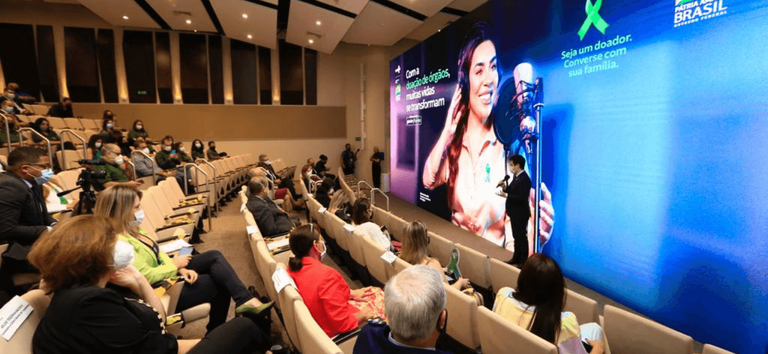Seven years after the loss of her sister in a car accident, homesickness is still part of the life of nurse Alessandra Justino, a resident of Brasília. But amidst the pain, what comforts her and her family is that parts of her sister are still alive in many people. It's just that the organs were donated. “We still feel very proud of having managed to donate my sister's organs, it's an incredible thing,” she said.
The donation was possible because Alessandra's sister died brain death, when all the brain functions irreversibly stop working. In this case, organs such as the heart, liver, kidneys, lungs and corneas continue to function and can be transplanted into other people.
According to the Ministry of Health, currently, 53,218 people are waiting in the waiting list for an organ or tissue. On the other hand, there is still resistance on the part of families to release the organs of a person who had brain death. This year alone, of the 5,857 brain death records, only 1,451 became effective donors. The rejection rate by families was 37.8% in 2021, but this number was already higher. In 2018, for example, it reached 41.3%.
And to change this situation, the Federal Government launched the National Organ Donation Campaign this Monday morning (27), in Brasília.
“The campaign we are launching today draws attention to two aspects. The first is to make all Brazilians aware of the importance of donating organs. The first point is for the person to be convinced. And after convincing herself, she needs to understand that this is not enough. She needs to talk to her family because Brazilian law says that the final word for organ donation does not belong to the person. So it's not enough to be registered with the National Driver's License, it's not enough to have a registry in the registry. The family has to approve and give the final word of donation", emphasizes the substitute Health Minister, Rodrigo Cruz.
In the case of Alessandra Justino's sister, this conversation with the family was important to fulfill her wish. “My sister did this. In life, she always talked about the issue of organ donation, she always talked about how much she thought it was important to donate”, says Alessandra. The donation took place after the family spoke with hospital doctors and a social worker. “After a few months, I received a letter to say that she had donated the corneas. The Instituto dos Olhos sent a very beautiful letter to my family. It was really cool to have received this and to this day we remember the affection they had with us”.
Waiting list
Among the 53,218 people waiting in line for an organ or tissue, 31,125 are waiting for a kidney. Then comes cornea (19,115), liver (1905), double pancreas and kidney transplant (387), heart (365) and lung (259).
Among the goals of the Ministry of Health to increase the number of transplants is the identification of 100% of cases of brain death. Today, about 23% of cases go unidentified. Even so, Brazil has the largest public transplant system in the world. The structure has a National Center, located at the headquarters of the Ministry of Health, in Brasília, where 17 professionals work 24 hours a day in the logistics part. Each capital also has a state center. There are 648 qualified transplant hospitals across the country. Last year alone, the Federal Government invested R$ 1.16 billion in these services. From 2008 to 2020 were R$ 15 billion. In 20 years, the Unified Health System (SUS) performed about 412 thousand transplants.
And to support the hospitals that are part of the National Transplant System and guarantee the quality of these services, the Ministry of Health will grant financial incentives for donation and transplant actions in the public health network. The objective is to establish criteria and performance levels for these units, based on quality of care, patient safety indicators, access, among others. Based on these parameters, each hospital will be classified and receive a score, which will result in a higher percentage of resources.
Numbers
Brazil currently has:
1 National Transplant Center;
27 State Centrals;
648 qualified Transplant Hospitals;
1,253 Transplant Services enabled;
1,664 Transplant Teams enabled;
78 Organ Procurement Organizations (OPO);
516 Intra-hospital organ and tissue donation committees for transplants;
52 Eye Tissue Banks;
13 Technical Chambers
.

 Mr. Alessandro Jacob speaking about Brazilian Law on "International Bar Association" conference
Mr. Alessandro Jacob speaking about Brazilian Law on "International Bar Association" conference